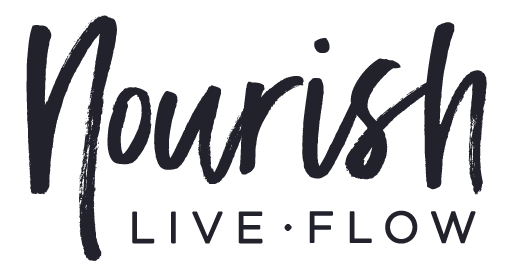Why You Need To Be Eating Enough (Healthy) Fat's + Our Fave New Recipe!
Gone are the days when experts believed that eating fat makes you fat. We are now in a new era (thankfully!) where wellness experts understand that by consuming moderate amounts of fat in our diet, we are actually enhancing many aspects of our overall health and wellbeing. Studies have shown that eating a diet that consists of a moderate intake of 'healthy fats' can boost your brain health, help with weight loss (by curbing cravings and helping us feel full and satisfied), boost your hair and skin health, stabilize insulin and blood sugar levels and improve our heart health by decreasing LDL (low density lipoproteins) and increasing HDL (high density lipoproteins).
"Gone are the days when experts believed that eating fat makes you fat."
But, before you go down an entire box of cookies or a carton of fried chicken, it's worth noting that not all fats are created equal. The fats that we want to be eating more of are monounsaturated fats and the fats that we want to be eating less of are trans fatty acids. And, while once thought of the villain, we now know that saturated fats (the ones found in red meat, egg yolks and coconut oil for example) can absolutely be incorporated into a healthy diet. The best sources of monounsaturated fats are fatty fish like salmon, olives and olive oil, avocados, nuts including walnuts and almonds and seeds including flax, chia and hemp seeds as all of these are rich sources of Omega-3 fatty acids and DHA.
"But, even more important than fat, it's our sugar intake that we really need to curb."
But, when we are assessing our diets, even more important than fat, it's our sugar intake that we really need to look at and curb. Why? Because sugar not only increases inflammation (the dreaded i-word) in our bodies, but it wreaks havoc on our skin and causes a host of health problems including life-threatening illnesses like diabetes, heart disease and cancer. A high sugar intake has also been linked to health problems like weight gain and obesity, poor memory and concentration and generally it can make you feel, well, blah.
So, if you're interested in adding more healthy fats to your diet, check out our fave new recipe below. The best thing about it? It's ultra-versatile so you can switch out the veggies we've used for any of your faves!
Organic Salmon & Roasted Veggie Salad
Serves 2-4
Ingredients
2-4 x 6 oz organic or wild salmon fillets
Handful of baby carrots
1 small sweet potato, peeled and cubed
8-10 brussels sprouts, cleaned and halved
12 asparagus spears, ends trimmed
1 tbsp olive oil
1 tsp each flaked sea salt and freshly cracked black pepper
Zest of 1 lemon
4-6 large handfuls baby spinach, baby arugula or baby kale leaves
3 tbsp pumpkin seeds
2 tbsp hemp seeds
Lemon Yogurt Dressing
1/3 cup full fat plain yogurt
Juice and zest of 1-2 lemons
1/2 tsp flaked sea salt
How-To
1. Preheat oven to 400 F. Line a large rimmed baking sheet with parchment paper. Place salmon fillets, skin side down, on baking sheet. Scatter prepared vegetables, in an even layer, around the fish fillets (if the baking tray is too cramped, use 2 baking sheets, one for the fish and one for the veggies).
2. Drizzle both fish and veggies with olive oil and sprinkle with sea salt, pepper and the lemon zest. Place baking tray in the oven to roast for 25-35 minutes, until fish is cooked through and veggies are tender and golden around the edges. Remove and let rest for 5 minutes.
3. Meanwhile, divide your greens between 2 or 4 bowls. Top each with some of your roasted veggies and one fillet of salmon (remove the skin if you like). Sprinkle each with pumpkin seeds and hemp seeds.
4. In a small bowl, whisk together the yogurt, lemon juice, lemon zest and sea salt. Drizzle some vinaigrette over the top of each salad. Serve immediately!

